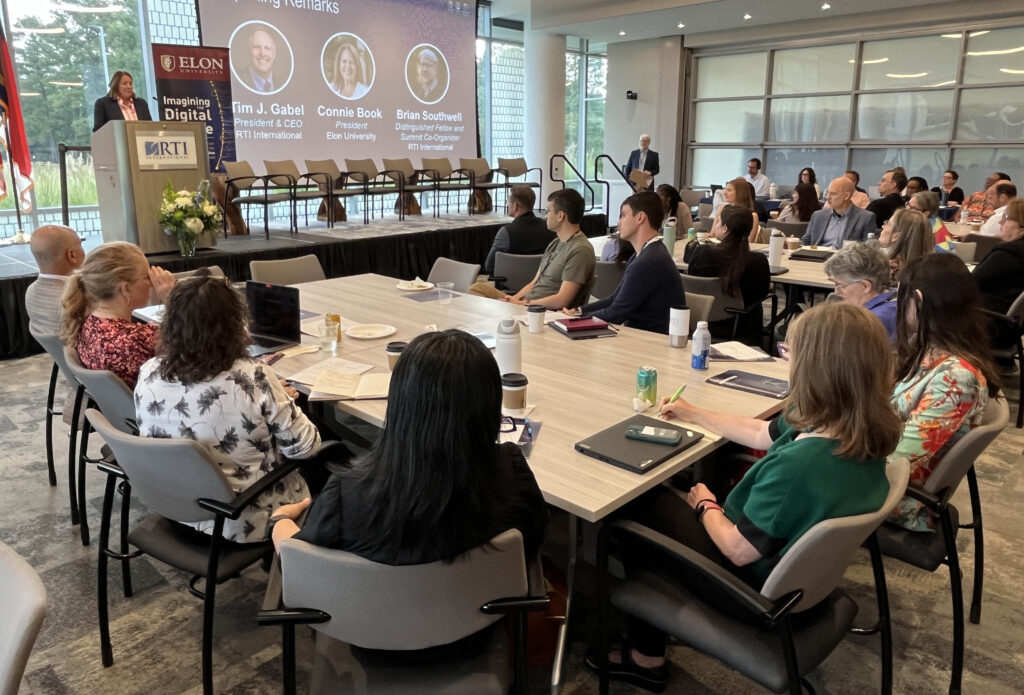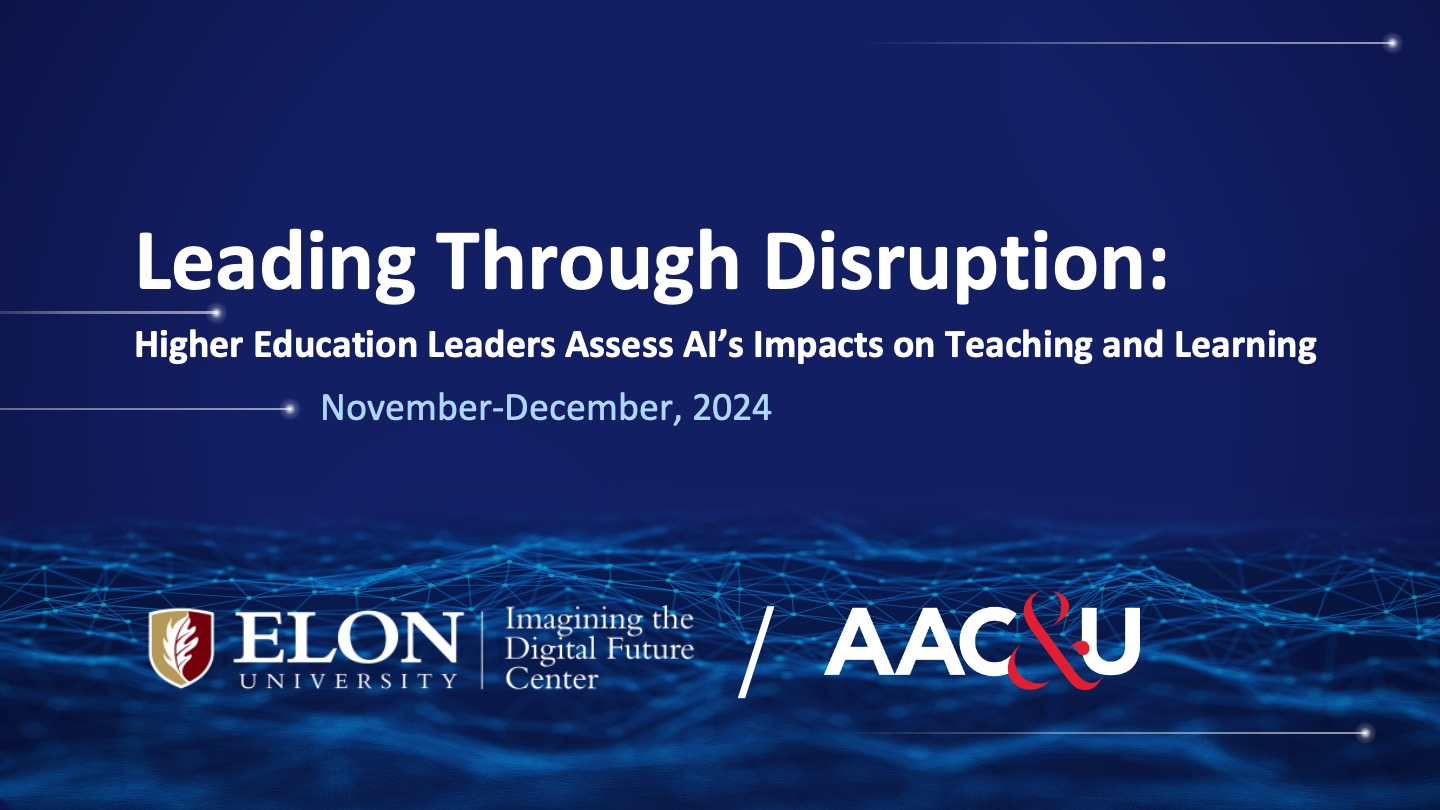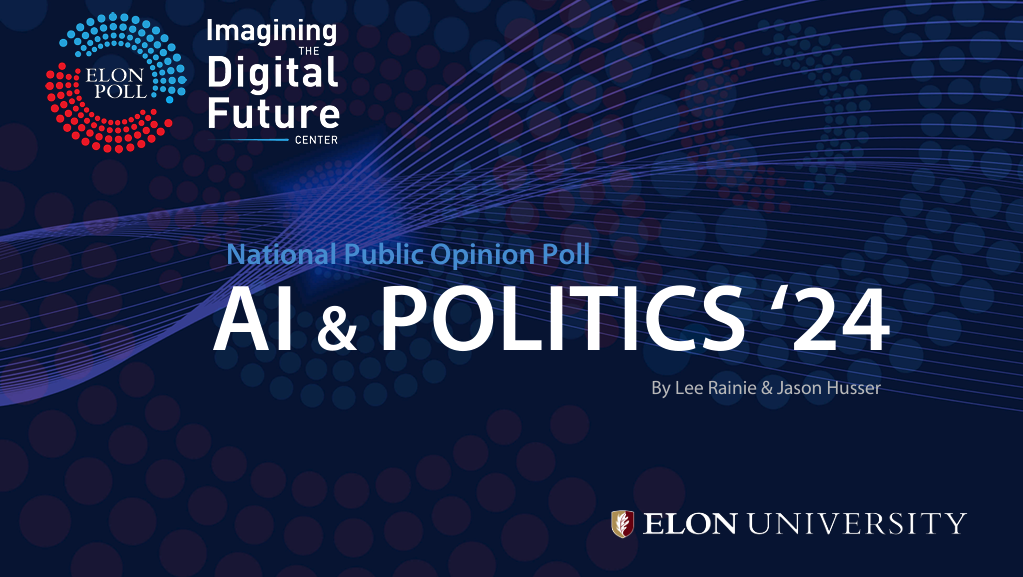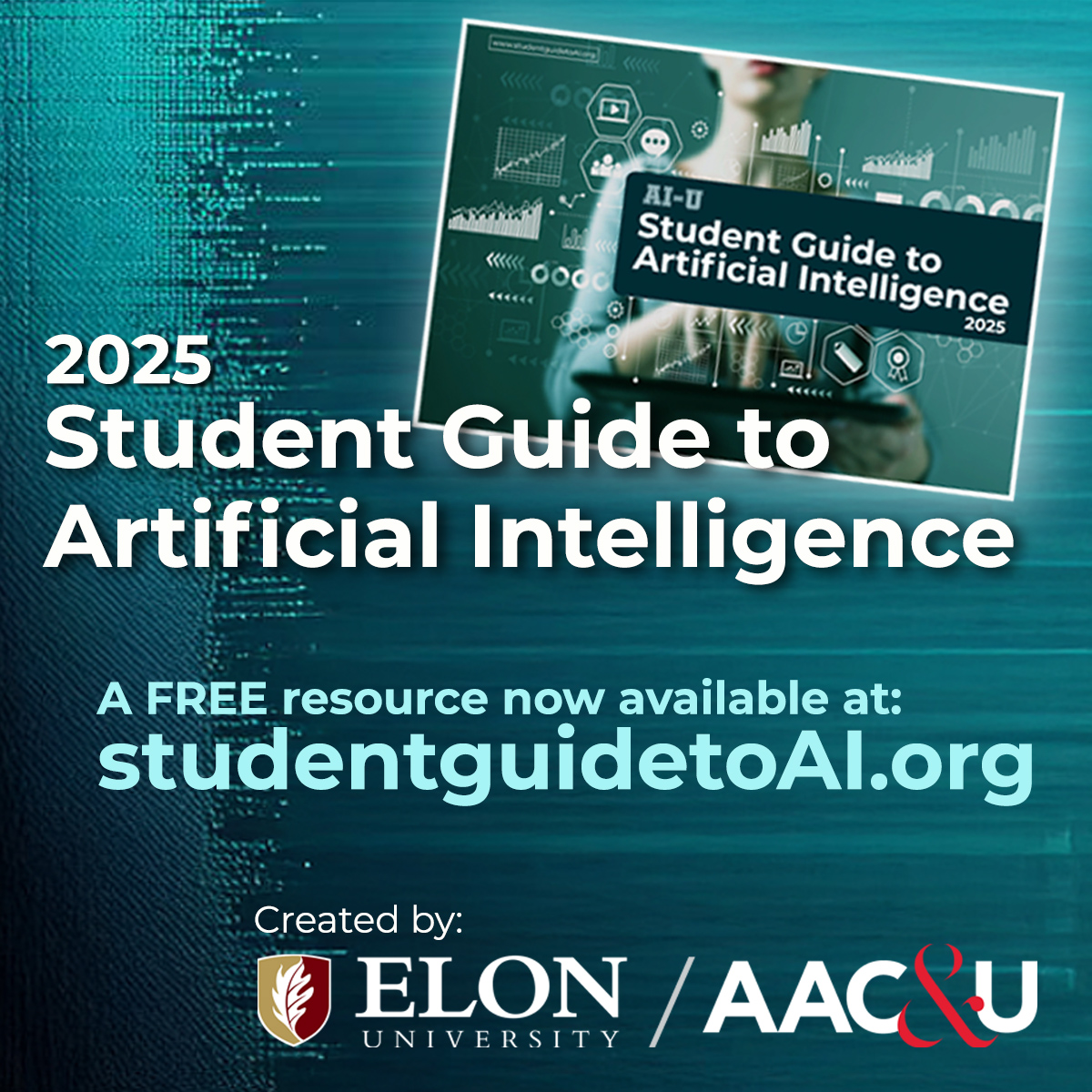The Imagining the Digital Future Center aspires to work with groups and individuals at Elon University and beyond on research that aligns with the Center’s mission. Results of these partnerships are included on this page.
The Human Edge: Our Future with Artificial Intelligence

On Sept. 17, 2025, the Imagining the Digital Future Center and RTI International hosted a daylong summit to develop research agendas and explore philosophical questions on the nature of humanity with the rise of artificial intelligences. More than 600 people took part at the RTI headquarters in North Carolina’s Research Triangle Park and virtually via Zoom. Participants explored relationships between AI and modern approaches to education, human agency, creativity and well-being. In addition, attendees worked toward a shared research agenda during breakout sessions meant to support responsible development and use of AI technologies.
Leading Through Disruption: Higher Education Leaders Assess the Impact of AI on Teaching and Learning

In January 2025, Imagining the Digital Future and the American Association of Colleges and Universities (AAC&U) released the results of a national survey of 337 higher education leaders about the ways artificial intelligence is impacting teaching and learning. The survey covered the current situation on campuses, the struggles institutional leaders encounter, the changes they anticipate and the sweeping impacts they foresee due to Generative AI.
National survey on AI and politics

In May 2024, Imagining the Digital Future collaborated with the Elon University Poll to conduct a national survey about the impact of artificial intelligence on U.S. politics. More than three-fourths of Americans said they feared abuses of AI that would affect the 2024 presidential election, and many said they were not confident they could detect faked photos, videos or audio.
Student Guide to Artificial Intelligence

In May 2025, Imagining the Digital Future released the second edition of the Student Guide to Artificial Intelligence in partnership with the American Association of Colleges and Universities (AAC&U). The guide was developed with the collaboration and review of faculty, scholars, academic leaders and students at universities in 14 countries. The guide is available free to all students and institutions, who may use, distribute and adapt its content under a Creative Commons license. “This guide was written from the student perspective and includes practical advice on using AI responsibly while in college and preparing for the AI future,” said Elon University President Connie Book. The 2025 edition is the second publication in the series, following the release of the first Student Guide to AI in August 2024.
Artificial Intelligence in Higher Education
Imagining the Digital Future Center is coordinating a global effort to establish a set of core principles to guide development of artificial intelligence policies and practices in higher education.

In summer 2023, more than 140 higher education organizations, administrators, researchers and faculty members from 47 countries collaborated to create a statement titled, “Higher education’s essential role in preparing humanity for the artificial intelligence revolution.”
The statement was released Oct. 9, 2023, at the 18th annual United Nations Internet Governance Forum (IGF) in Kyoto, Japan. The session was led by co-authors, Elon University President Connie Ledoux Book, Elon scholar-in-residence Lee Rainie and Professor Divina Frau-Meigs of Sorbonne Nouvelle University in Paris.
On March 8, 2024, President Book moderated a webinar titled “AI in Academic: Transforming Teaching & Learning in the Digital Era.” The online session included included Ethan Mollick, distinguished scholar at the University of Pennsylvania’s Wharton School; Udo Sglavo, vice president of AI & Modeling at the SAS Institute; Hoda Mostafa, director of the Center for Learning and Teaching at The American University in Cairo; and Lee Rainie, director of the Imagining the Digital Future Center.
The six principles included in the statement embody a call for the higher education community to be an integral partner in development and governance of AI.
6 guiding Principles for AI in higher ed
- People, not technology, must be at the center of our work. As we engage with AI, human health, dignity, safety, privacy and security must be our first considerations.
- We should promote digital inclusion within and beyond our institutions. Collaboration with government, the private sector and civil society will enable us to expand outreach to all populations.
- Digital and information literacy is an essential part of a core education. Learners in all disciplines must be prepared to use AI proficiently, safely and ethically, and must understand the basic concepts of computer systems and programming, machine learning and data science.
- AI tools should enhance teaching and learning. AI must enrich and extend the educational experience and advance access and equity. We must also carefully protect the interests of learners and teachers.
- Learning about technologies is an experiential, lifelong process. We must help learners gain the hands-on skills they need to adapt to continual change.
- AI research and development must be done responsibly.
We need rigorous ethical standards and failsafe systems as we advance AI research and design.
Signatories to the statement on higher education and artificial intelligence represent 47 countries. They include members of several academic groups, 11 university presidents and chancellors and more than 120 distinguished researchers and faculty members with expertise and interest in issues related to AI.
Leaders of the following academic groups are among the signatories:
- National Association of Independent Colleges and Universities (NAICU) (USA)
- American Association of Colleges & Universities (AAC&U) (USA)
- International Association for Media and Communication Research (IAMCR)
- European Communication Research and Education Association (ECREA)
- American Library Association
- Special Interest Group of the Network for Education and Research Quality (NERQ)
- Strategy Group for Responsible AI UK


